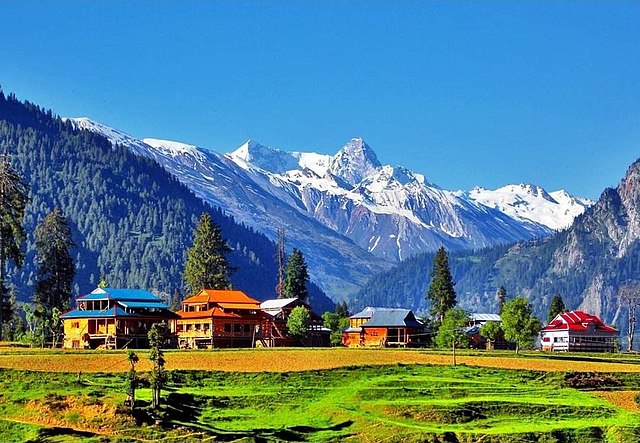The Kashmiri diaspora refers to the migration of people of Kashmiri origin from the Kashmir Valley to other parts of the world. The migration of Kashmiris can be traced back to the 19th century, when many Kashmiris moved to other parts of India and British India in search of education, employment, and business opportunities. The conflict in Kashmir in the late 20th century and early 21st century resulted in a large number of Kashmiris moving abroad for security and better economic prospects. The Kashmiri diaspora is known for preserving and promoting the rich culture and heritage of Kashmir, including its music, literature, and cuisine. Despite being spread across different countries, the Kashmiri diaspora remains closely connected to their roots and is actively involved in the ongoing political and social developments in Kashmir. The community has developed a unique identity that is shaped by their cultural heritage and the new environments they have adapted to. The community has a rich cultural heritage and a strong sense of community, which are some of its strengths. The diaspora is also playing an important role in promoting awareness about the situation in Kashmir and advocating for a peaceful resolution to the conflict. Diasporas can have a significant impact on the economic growth of their homelands, particularly when it comes to increasing physical capital and productivity, which will ultimately aid to increase in job creation, living standards, and greater growth. Despite facing numerous challenges, the strength of the Kashmiri diaspora lies in its cultural heritage, strong family ties, and entrepreneurial spirit.Top of Form One of the key strengths of the Kashmiri diaspora is their high levels of education and professional skills. Many members of the community have pursued higher education and have established themselves in a wide range of professional fields. This has not only helped them achieve success in their careers but has also enabled them to make a valuable contribution to the countries where they live. Another strength of the Kashmiri diaspora is the strong networks and support systems within the community. Members of the community are known for their support of each other and their willingness to lend a helping hand. This network of support is especially important for those who are far from home and facing challenges such as language barriers or limited job opportunities. In addition, remittances from members of the Kashmiri diaspora are an important source of economic support for their families back home. These financial contributions help to improve the quality of life for many people in Jammu and Kashmir and play a significant role in the region’s economy. Although diasporas have played an important role in host regions as well as their region of origin, more and more people are beginning to recognize their darker sides as well. One of the biggest challenges faced by members of the community is the distance from their home and cultural disconnection. Many find it difficult to maintain their traditional customs and practices in their new environment, which can lead to a sense of isolation. Language barriers and limited job opportunities are also weaknesses of the Kashmiri diaspora. Members of the community may struggle to find work in their field of expertise and may also face discrimination in the workplace. Finally, lack of political representation and limited involvement in decision-making is a weakness of the Kashmiri diaspora. Members of the community often feel that their voices are not heard and that their opinions are not taken into account when important decisions are being made. In conclusion, the Kashmiri diaspora is also a diverse and resilient community with a rich cultural heritage. While they face many challenges, their strong sense of community and support for each other, as well as their education and professional skills, are some of their key strengths.


